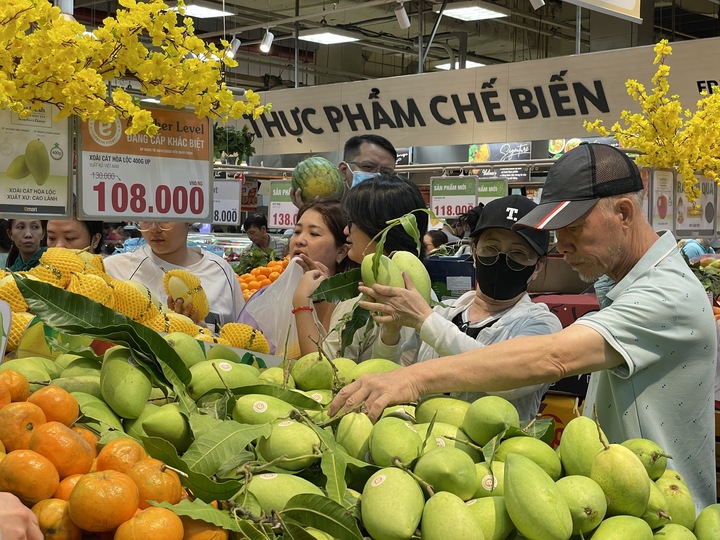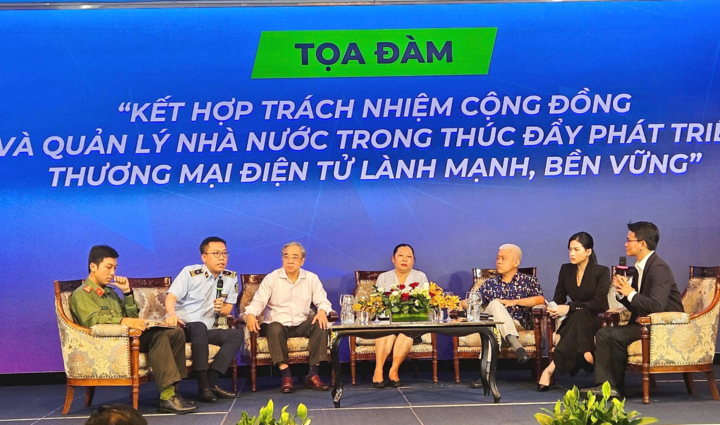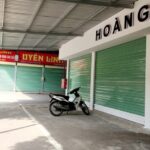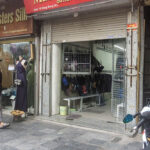At the launch event of the “Tick Blue Responsibility in E-Commerce” program organized by Ho Chi Minh City’s Department of Industry and Trade on June 20, when asked about the role of KOC (Key Opinion Consumers) in combating counterfeiting and illicit trade, a pressing issue, especially in the digital space, the influential “order-closing warrior,” Vo Ha Linh, shared her deep contemplations on the matter.
Ha Linh, assuming a dual role, elaborated on her perspective. She is both a leader in a company providing affiliate marketing solutions and a KOC, essentially serving as the bridge connecting e-commerce platforms, brands, and consumers through her marketing and sales endeavors.

Products with the Tick Blue mark instills consumer confidence with its assurance of quality from production to consumption. (Photo: H. Linh)
Ha Linh explained that in the past, many KOLs/KOCs not only engaged in promotional and sales activities but also took on the roles of producers, marketers, and sellers of their own products. Some KOCs even acted as retailers, importing goods into their warehouses and then distributing them to the market.
“These individuals, as importers and sellers, have a thorough understanding of the origin, source, and quality of the goods they trade, making it impossible for them to be deceived,” asserted Vo Ha Linh.
On the other hand, companies providing affiliate marketing solutions are responsible for ensuring that KOLs/KOCs effectively promote the products of brands through live streaming and video content, ultimately boosting sales for these brands. In this scenario, the KOLs/KOCs are affiliated with the brands they promote. They neither produce nor trade goods directly from their warehouses; instead, the products remain in the brand’s inventory.
According to regulations, when organizing live streaming sessions or creating video content, the implementing unit must clearly disclose that the content is sponsored by the brand and the commission earned. This transparency empowers users with a clear understanding of the nature of the products being sold and the sponsorship involved, making it challenging for deception to occur.
Mr. Nguyen Lam Thanh, Director of Policy at TikTok Vietnam, emphasized the detrimental effects of counterfeiting and illicit trade on consumers’ health, lives, and property. More importantly, it erodes trust, leading consumers to reject products and damaging legitimate manufacturers. KOLs/KOCs and content creators could inadvertently find themselves implicated in violations or even facing legal consequences, despite their unintentional involvement.
Mr. Thanh applauded the ongoing vigorous campaign against counterfeiting, uniting e-commerce platforms to cleanse the market, restore consumer confidence, and uphold fairness for legitimate producers.
The “Tick Blue Responsibility in E-Commerce” program is the next step in the evolution of the “Tick Blue Responsibility” initiative in the traditional retail system, implemented in Ho Chi Minh City since March 2024, with the participation of large distribution corporations and hundreds of manufacturing enterprises.

Vo Ha Linh, as a KOC, participated in a panel discussion on signing a community responsibility commitment for sustainable e-commerce development.
Mr. Nguyen Nguyen Phuong, Deputy Director of Ho Chi Minh City’s Department of Industry and Trade, shared that after one year of implementation, the program has attracted 308 providers with 2,039 products. Additionally, 11 retail units have joined hands in this initiative. Consumers can shop with peace of mind, assured by the products’ guaranteed responsibility from production to retail.
The “Tick Blue Responsibility in E-Commerce” is built on a new management philosophy, with three main pillars of responsibility: e-commerce platforms, sellers, and affiliate marketers. Participating e-commerce platforms and KOLs/KOCs commit to ensuring the authenticity and transparency of the goods they trade.
Individuals and organizations voluntarily participating in this program will sign a Code of Conduct and submit it to Ho Chi Minh City’s Department of Industry and Trade or through designated channels. Once recognized, they are permitted to display the Tick Blue logo on their e-commerce storefronts, social media accounts, or sales profiles. This logo will enable consumers to easily identify reputable businesses and quality products.
Notably, the community monitoring system will play a pivotal role, empowering individuals to report and combat violations. Offenders may face consequences such as warnings, revocation of the Tick Blue status, public disclosure of violations, or removal from the system.
Data from the Department of E-Commerce and Digital Economy (Ministry of Industry and Trade) underscores the pioneering role of e-commerce in Vietnam’s digital economy, maintaining an impressive growth rate of 18-25% annually. On average, each Vietnamese consumer makes online purchases up to four times per month.
According to Metric’s statistics from five major e-commerce platforms, the market recorded robust growth in the first quarter of 2025, with a total revenue of VND 101,400 billion, a 42% increase compared to the same period last year. Approximately 951 million products were sold. The number of high-revenue shops (with revenue above VND 50 billion) grew by 95%.
For the second quarter of 2025, the market is expected to grow by about 15%, reaching a revenue of VND 116,600 billion, and a product volume of about 1,112 billion products, thanks to significant promotions during the summer, couple’s day, and mid-year sales events.
“Unraveling the Closure Crisis: Understanding Why Businesses are Shutting Down”
“On the evening of June 19, at the Ministry of Industry and Trade’s regular press conference for the second quarter, Mr. Hoang Anh Duong, Deputy Director of the Department of Domestic Market Management and Development, explained the reasons behind the closure of thousands of shops and businesses on streets and in traditional markets.”
The Seizure of 450 Counterfeit Rolex Watches Worth 45 Billion Dong at the Trà Lĩnh Border Gate
In a recent crackdown on illicit trade, customs officials seized 450 counterfeit Rolex watches in a single operation. This significant bust underscores the rampant issue of intellectual property infringement, with the fake goods estimated to be worth a staggering 45 billion VND based on the market value of genuine Rolex timepieces.
Counterfeit Goods: A Tough Escape
The aggressive crackdown on counterfeit and pirated goods presents a prime opportunity to purge the market of illicit activities and foster the growth of legitimate businesses. This decisive action sends a clear message that only those who operate within the confines of the law will thrive, creating a level playing field for all law-abiding enterprises.











































